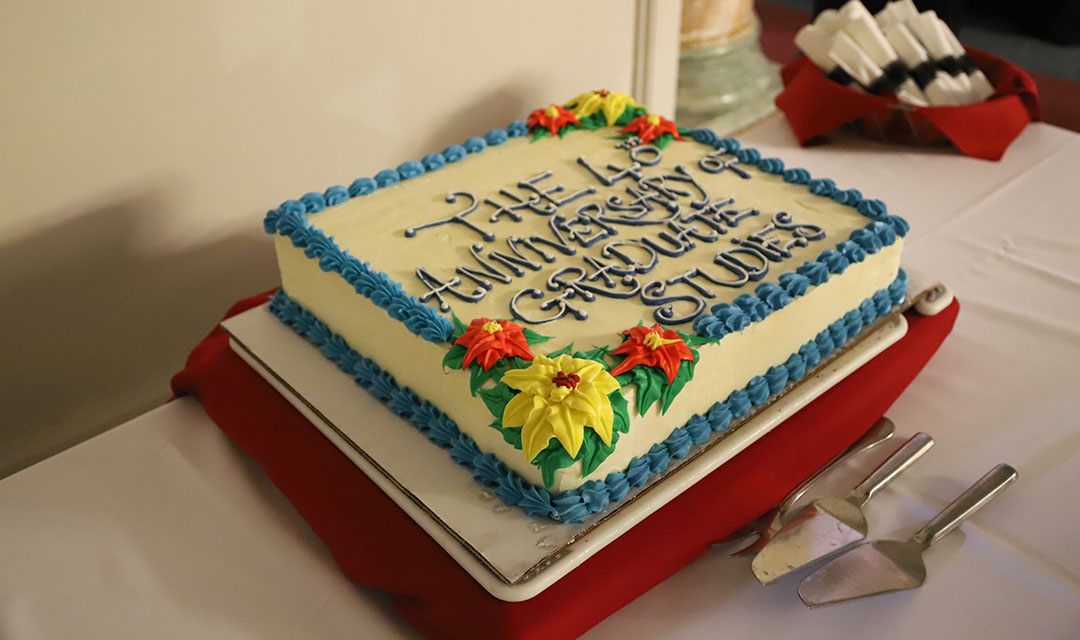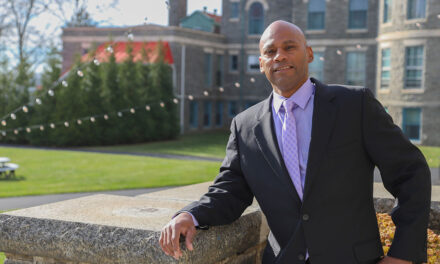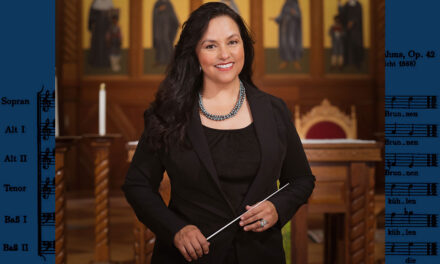By Lydia Szyjka
Immaculata University’s College of Graduate Studies and Research (CGSR) celebrated its 40th anniversary in 2023. This milestone provides an opportunity to reflect on Immaculata’s achievements in delivering career-focused master’s and doctoral degrees to prepare ethical leaders for today’s ever-changing world.
In May 1983, after alumni and local community members urged Immaculata to expand into graduate degree programs, Immaculata officials thoroughly assessed the academic and professional needs of the surrounding counties. Finding sufficient demand for career-focused graduate education, they responded to the needs of working adults seeking graduate degrees by offering part-time study in the evening and on Saturdays instead of the traditional graduate programs at the time that required full-time study held during the day.
Immaculata built upon several successful undergraduate programs and strategically introduced master’s programs in counseling psychology, educational leadership/administration and nutrition education. The founders of these programs—Sister Carroll Isselmann, IHM, (nutrition), Sister Mary LaLande Drumm, IHM (education) and Sister Kathleen Mary Burns, IHM (psychology) built the curricula in time for classes to begin on July 5, 1983. Initial enrollment in the graduate programs was 29 students, and enrollment surged to 79 by the fall semester.
Encouraged by this success, Immaculata expanded its offerings, securing approval for a Master of Arts in Music Therapy in 1990, followed by the approval of a Doctor of Psychology (Psy.D.) in Clinical Psychology and the Ed.D. in Educational Leadership in 1991.
By 2008, Immaculata boasted eight advanced degrees catering to diverse fields including business, communication, education, linguistics, music, nutrition, nursing and psychology. The constant evaluation and transformation of academic programs allows Immaculata to respond to the ever-evolving shifts in higher education.
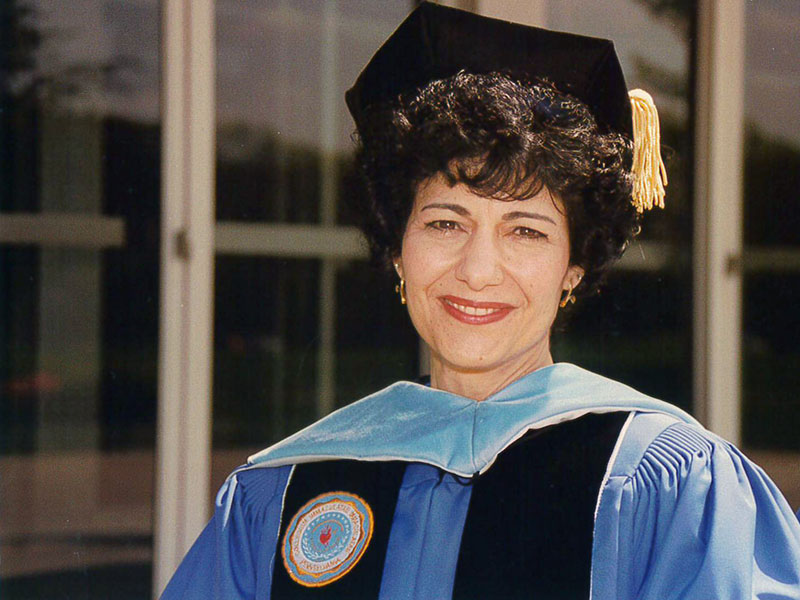
Through it all, the focus of the staff of the College of Graduate Studies and Research has always included a holistic approach to their students. Sister Ann Heath, IHM, Ph.D., who served as the dean of CGSR from 1996 to 2009, had a goal of supporting students at every level of their educational journey. This commitment was emphasized by adding an off-site cohort location in 1996 for students pursuing an Ed.D., which allowed students to attend classes at their places of work or reduce their travel time.
The expansion of the off-site offerings also broadened accessibility of advanced degrees to areas with limited educational options. By 2006, off-site programs grew to 15 locations, including New Oxford, Pennsylvania, 140 miles west of Philadelphia in rural Adams County. Sister Ann met with the superintendent of the Conewago Valley School District to establish a program that would be useful to the Adams County community and, with the dedicated support of campus faculty, began offering the Ed.D. classes in the district.
“Within our curriculum structure, we could respond to the emerging trends and ideas that the superintendent was interested in promoting within his district. We already had courses in various content areas, so therefore you could mold the curriculum to ensure it was responsive to that particular district,” Sister Ann stated.
Once the program was underway, representatives from Immaculata would frequently make the nearly two-hour drive to New Oxford for registration and advisement and to check on the classroom site. To solidify the connection of the students to Immaculata, Sister Ann recalled that the staff often sent care packages to the students. “It was just a little treat or little things that would help them to realize that even though they were studying at a distance, we were very conscious of their involvement in our campus.”
Even today, Sister Ann continues to foster connections with graduate students. As the director of the Ed.D. in Higher Education program at Immaculata, she teaches online classes (a combination of synchronous and asynchronous instruction). When the classes are held asynchronously, Sister Ann refers to her windowsill, where she keeps photos of each student in her class, so even though they are not physically there, she can see their faces as she interacts with them virtually.
These types of connections are what make an education at Immaculata different from many other graduate programs.
Marcia Parris ’15 Ed.D., the dean of CGSR since 2020, continues the work of her predecessors. As an alumna of the first graduating class of Immaculata’s Ed.D. in Higher Education, Parris can attest to the rigorous preparation for leadership and real-world application of theory in practice that characterizes Immaculata’s graduate programs. During her tenure as dean, many changes in higher education have occurred, including those necessitated by the COVID-19 pandemic.
“We had to lead through a number of challenges in the year 2020, so it was an interesting time to start the dean’s position,” Parris acknowledged. “We have seen a greater interest and comfort level in online learning.” As a result, CGSR introduced additional online options and more flexible delivery models for their programs, including a new fully online MBA and online master’s degrees in strategic leadership and higher education.
In response to the growing demand for professionals in health care, Immaculata established the College of Nursing and Health Professions and launched a new family nurse practitioner master’s degree in January 2024. In addition to online degree programs, Immaculata continues to maintain 21 off-site locations, mostly for education and nursing majors. Current enrollment for all graduate programs, including certifications and endorsement programs, exceeds 800 students.
Immaculata’s healthy enrollment numbers do not surprise Parris. She recognizes that over the past 40 years, there has been a dramatic increase in the number of people earning bachelor’s degrees in the U.S. For those individuals who may seek the benefits of an advanced degree, research shows that unemployment rates are lower while job satisfaction and earning potential are higher for those having graduate degrees.
However, Parris acknowledges that universities should be able to demonstrate the value of their advanced degrees. To quantify the education students receive from Immaculata, Parris is proactively evaluating programs and delivery methods, expanding student support services and ensuring that the academic offerings are market-relevant and reflect the needs of industry.
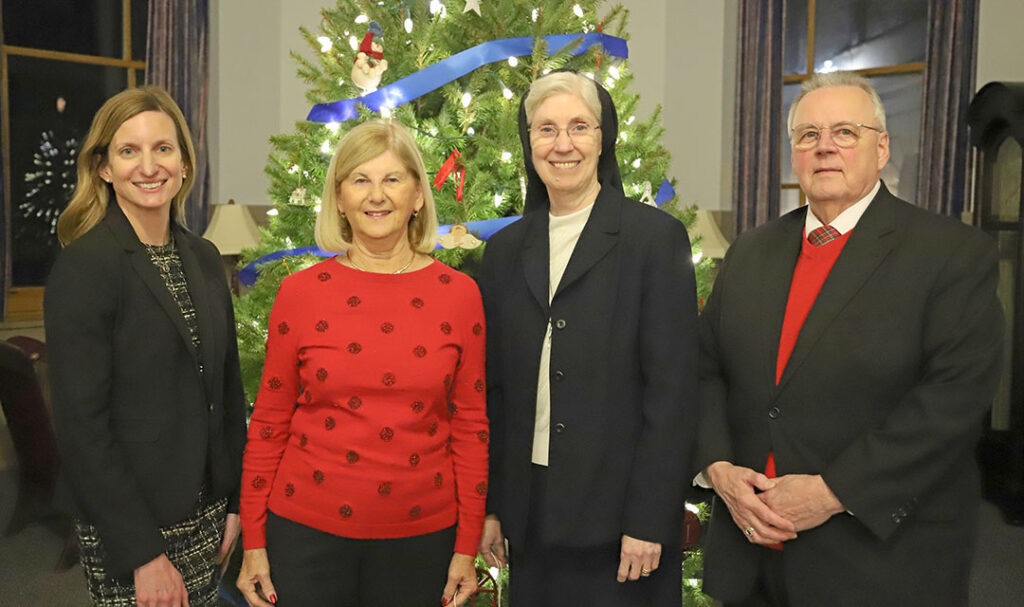
In 2008, Sister Ann Heath wrote the following assessment of the CGSR upon its 25th anniversary: “A broad spectrum of measures reflects the success of the College of Graduate Studies. This spectrum includes increases in the number of students enrolled, expansion of the number of locations served, development of new programs and delivery models, and impact on the community where graduates engage in professional endeavors.”
Sixteen years later, those same measurements account for its continued success. Parris notes that the future requires leaders to be responsive to all these factors and to critically evaluate what is offered and how it’s delivered. She also acknowledges that technology will continue to impact the delivery of higher education.
“I hope that means we will see greater access, meaning all individuals with the talent and aspiration to earn an advanced degree have a more accessible opportunity to achieve that goal,” Parris said.

